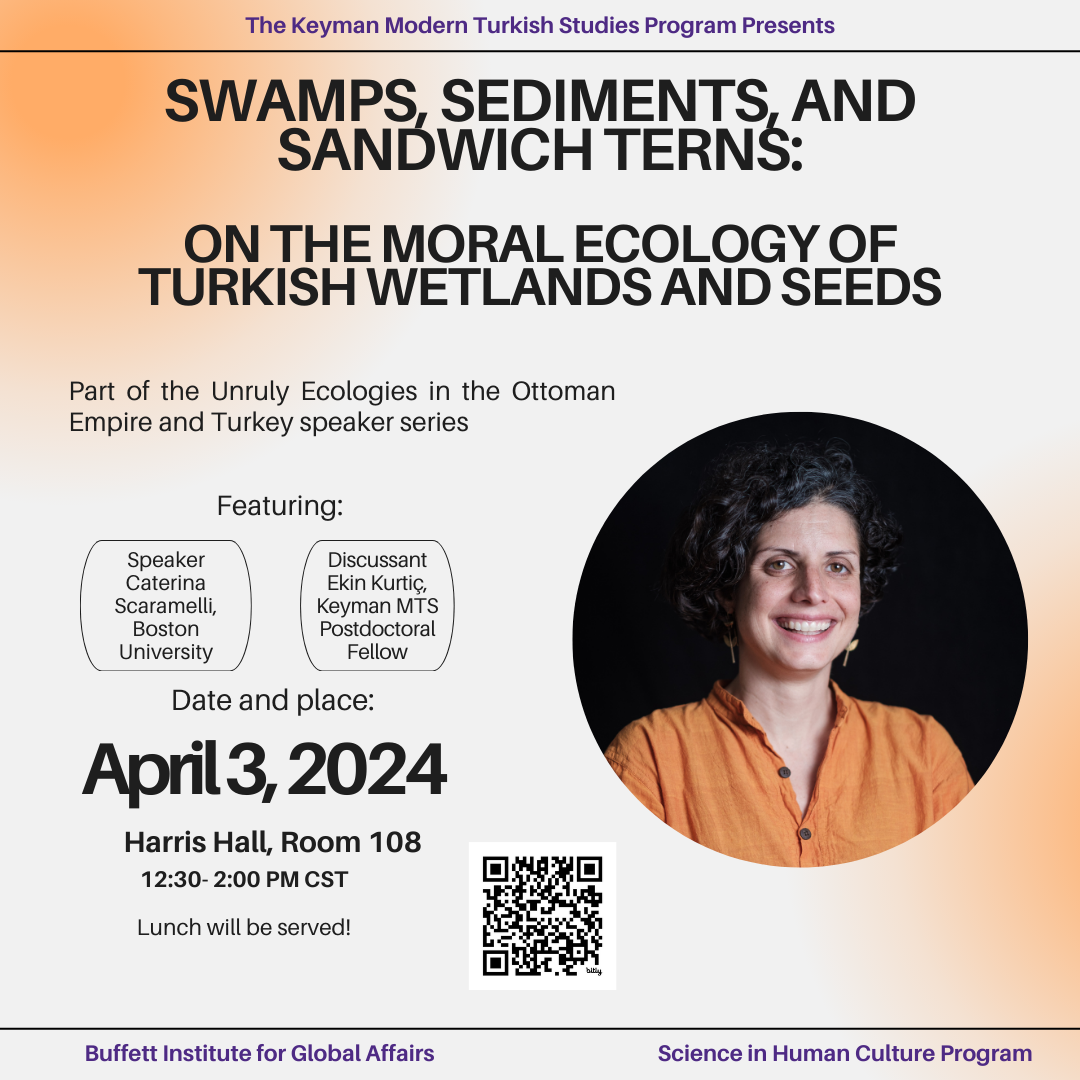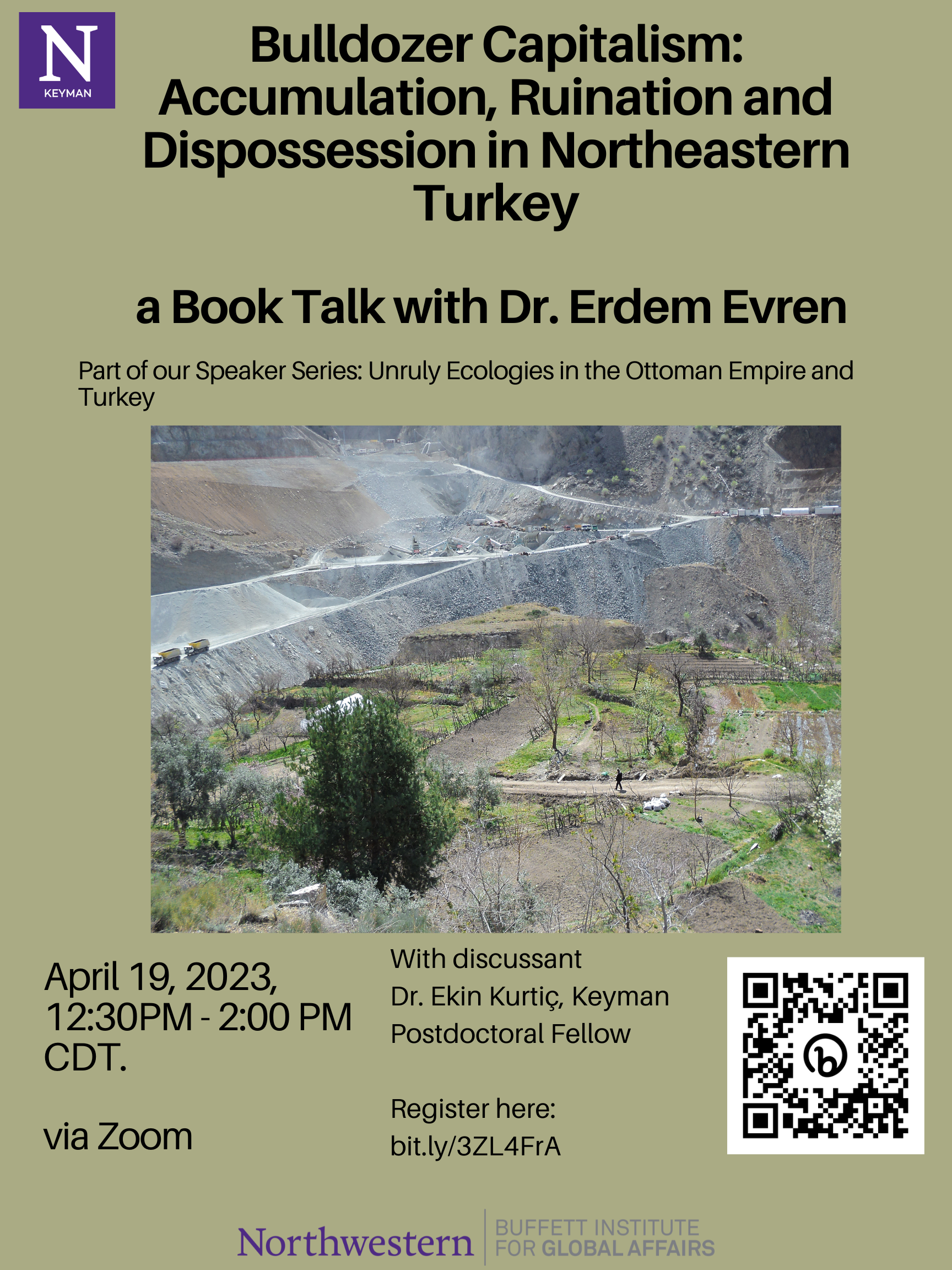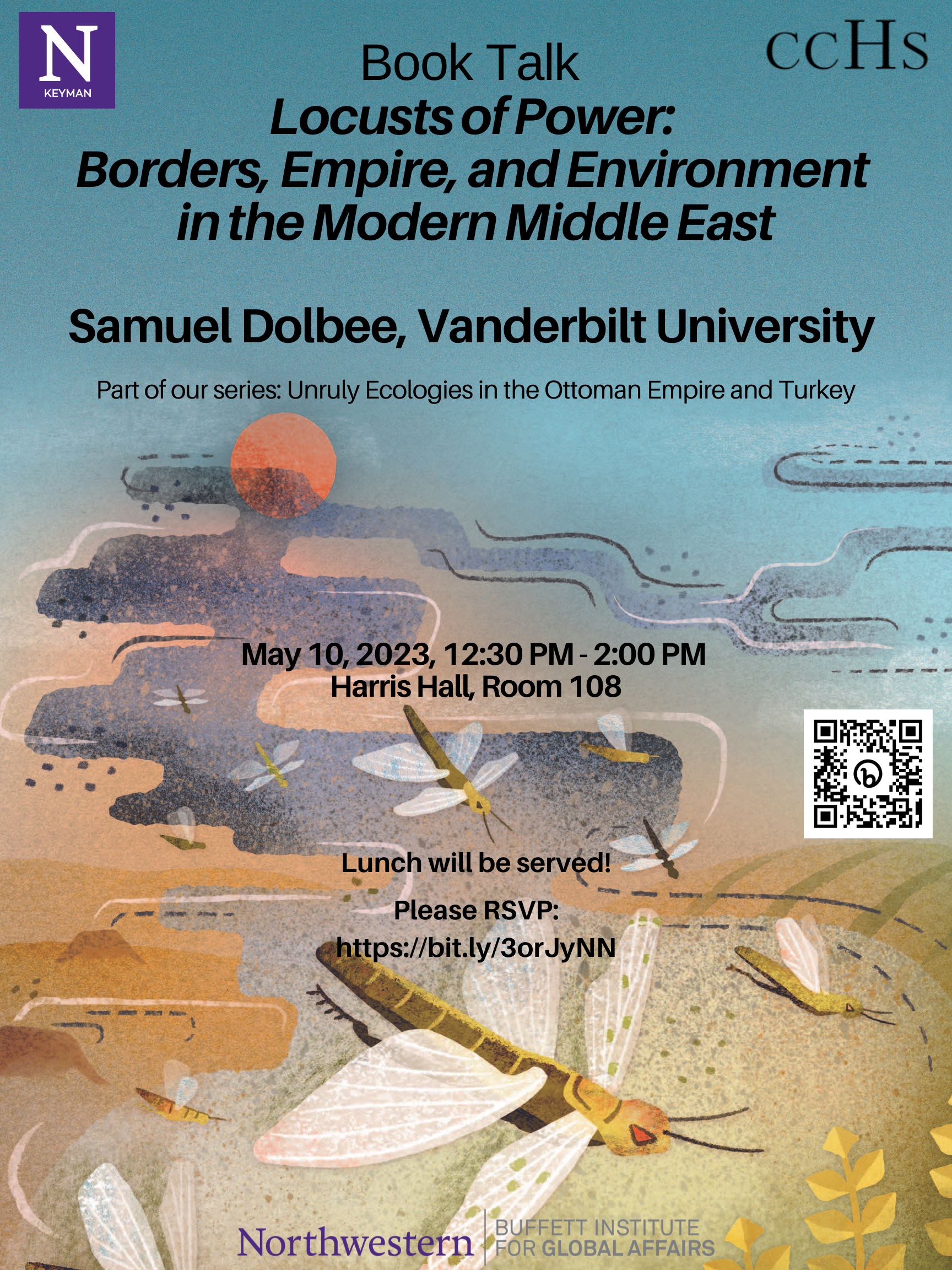Unruly Ecologies in the Ottoman Empire and Turkey
As the recent earthquakes in Turkey and Syria have once again demonstrated, more-than-human landscapes are inextricably linked to politics. The calamity has not only revealed that there is no such phenomenon as a “natural disaster” disconnected from political, economic, and social (f)actors, but it also showed that the naturalization of the disaster is central to the dereliction of political responsibility. At a time of intensifying and proliferating ruination and disasters worldwide, this speaker series will closely explore the politics of ecology and its limits by featuring scholars who work on more-than-human life in the Ottoman Empire and Turkey. The waters, soils, forests, wetlands, grasslands, plains, and mountains of the Empire and the Republic have long been subjected to forms of governing and technoscientific control to know, conquer, and benefit from what is cast as unruly natures. Yet, scholars have also pointed out the limits of this endeavor by showing the complex socio-material dynamics that challenge the will to tame. This speaker series will offer a reflection on new perspectives that close attention to ecological landscapes provides for the exploration of state formation, region-making, capitalist dispossession, infrastructural transformations, moral relations, and community building.
Past Events:
- May 15, 2024: 12:30- 2:00PM CST
“Dams as More-than-technical Infrastructures: Of Sediment and Techno-ecopolitics in the Çoruh Basin” with Postdoctoral Fellow Ekin Kurtiç
Ekin Kurtiç is a sociocultural anthropologist whose research is at the intersection of political anthropology, infrastructure studies, political ecology, and environmental history. She is the 2022-2024 Keyman Modern Turkish Studies Postdoctoral Fellow at Northwestern University. This talk will draw on her book manuscript in progress, titled Sedimented Landscapes: Building Dams, Restoring Ecologies in Turkey, which critically examines state-led projects of restoring and salvaging nature in the process of large dam building. The central question that runs through the book is the following: How does nature restoration come to matter in the process of large dam construction, which materially and figuratively submerges socio-natural landscapes? In this talk, Kurtiç will offer an ethnographic examination of one such state-led nature restoration projects, namely Çoruh Watershed Rehabilitation Project conducted by foresters and villagers in the uplands to protect the dams from the detrimental impacts of soil sedimentation.

- April 3, 2024: 12:30- 2:00 PM. Harris Hall, Room 108.
"Swamps, Sediments, and Sandwich Terns: on the Moral Ecology of Turkish Wetlands and Seeds" with Dr. Caterina Scaramelli.
Caterina Scaramelli is a Senior Lecturer in the department of Earth & Environment at Boston University. She holds a 2016 PhD from MIT's History, Anthropology, and STS program. Her research asks how and why communities and individuals undertake projects of environmental stewardships, and the political stakes, effects, and multispecies entanglements of these projects. Her monograph, "How to Make a Wetland: Water and Moral Ecology in Turkey" was published by Stanford University Press in 2021. She is currently conducting research on the ecological politics and poetics of seed varietal preservation.

- April 19, 2023: 12:30PM - 2:00 PM.
"Bulldozer Capitalism: Accumulation, Ruination, and Dispossession in Northeastern Turkey" a book talk
with Dr. Erdem Evren.
Erdem Evren is a political and economic anthropologist living in Berlin and Istanbul. He is currently working as an adjunct instructor at the University of Bremen and the Bosphorus University. His next research project will study how the narratives, policies and practices that develop around the demands for sustainability transform the hazelnut frontiers in Turkey and Italy.
Set in the resource frontier of northeastern Turkey, Bulldozer Capitalism studies the rise and decline of an anti-dam/anti-displacement campaign and the political responses to other extractive projects that it helped to shape in its aftermath. It shows that people can accommodate their own dispossession and displacement if they are directed to negotiate, invest in and speculate on the destruction of their built environment and nature. In the town of Yusufeli, Artvin, for nearly a decade the ruling Justice and Development Party (AKP) carefully cultivated and managed the residents’ future-oriented speculative investments on property related to the Yusufeli Dam project through its local branches and networks. The formation of a consensual political practice at the intersections of economy, identity and infrastructure as such, I argue, lies at the heart of the success of not only the AKP but also other authoritarian political projects of the past two decades. My talk will therefore discuss how consent is generated amid the experiences of crisis, be it social, political or environmental, by paying attention in particular to fluctuations and contradictions of the global capitalist system, and the new opportunities that they provided for conservative-nationalist governments, parties and leaders.

- May 10, 2023: 12:30 PM - 2:00 PM. Harris Hall, Room 108.
"Locusts of Power: Borders, Empire and Environment in the Modern Middle East" a book talk with Samuel Dolbee.
